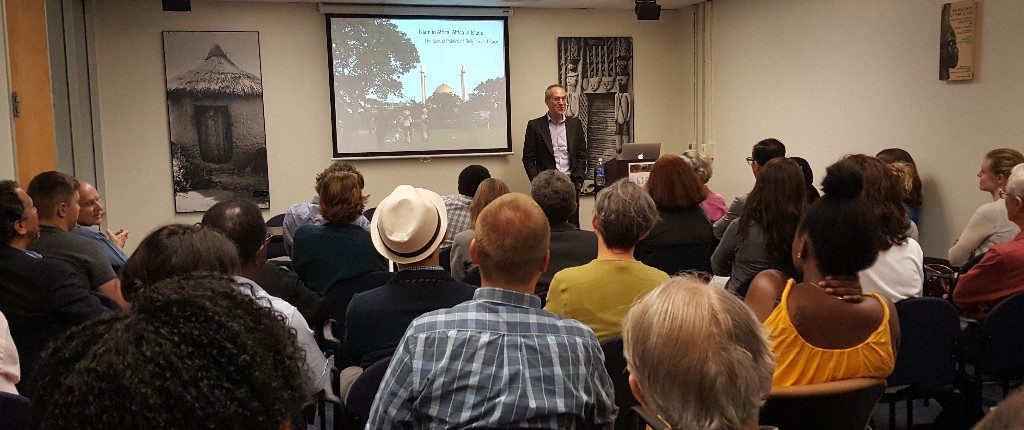On Friday March 24th, Rudolf Gaudio gave a Baraza presentation titled, “Islam in Africa, Africa in Islam: The Sexual Politics of Religion and Race.” Dr. Gaudio is Associate Professor of Anthropology at the State University of New York (SUNY)- Purchase College. The talk focused on stereotypes of race, religion, and sexuality in Nigeria, and how place or country/region/city of origin is used to connote and assign different informational and stereotypical labels.
Dr. Gaudio opened the talk framing the colonial, pre-Sharia law, and post-Sharia law environs of Northern Nigeria as it related to homosexuality and sexual stereotypes. Colonial sources and other literatures widely promoted the idea that Africans and black people do not engage in homosexuality or homosexual lifestyles. Yet, within Nigerian communities, fingers were pointed at certain regions or classes of people who were cast as more unbridled in pursuits of sexual pleasure, such as the elite or those in the north. A perspective sometimes offered in defense of the north is that gay culture had not been prevalent in Kano but was imported by Arabic traders and British colonists. The degree to which these belief systems are true is not nearly as important as that they are believed and thus become powerful.
Similarly, Dr. Gaudio highlighted cultural activities involving ‘feminine men’ who were not perceived as related to homosexuality, historically speaking. These ‘feminine men’ would perform in public spaces, dancing in feminine ways or (rarely) wearing female clothes. Though parties which feminine men had participated in during the pre-sharia law era took place in open spaces, after sharia law was introduced these sorts of social gatherings became harder to organize, had to occur in private spaces, or had to occur deep in the bush where they could occur in secret.
Dr. Gaudio also used a variety of vignettes from novels, music videos, and online forums which play on the notion of sexuality, what is permissible and how place is used as a marker of moral behavior. For instance, in some ways Northern Nigeria under Sharia Law is conceptualized as existing in a moral space between more conservative Arab cultures and the more morally permissible southern Nigeria. Gender norms applied to the case of ‘Kannywood’ actress Rahama Sadau, where she was expelled from the Kano-based movie industry for her role in a music video with ‘southerner’ ClassiQ (who is of northern origins but who exudes a southern sense of morality) exemplify the differences in moral space. Arguments defending these moral spaces propose that ‘this is how things work here’, which suggests an impermeability despite evidence of ongoing cultural change and renegotiation.